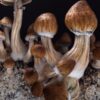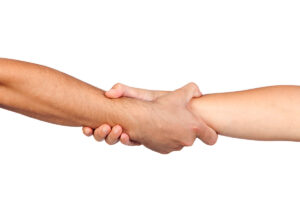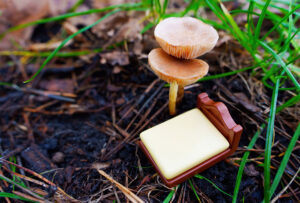
Integration
Integration is a critical aspect of any psychedelic experience, as it focuses on internalizing the lessons, insights, and emotions encountered during the trip. This process promotes personal growth, self-awareness, and helps apply meaningful changes to your daily life for improved well-being and understanding.
Reflect on your experience
The process of reflecting on your psychedelic experience is a vital first step in integration. It involves processing emotions, analyzing insights, and promoting self-discovery.
Set aside time to process and analyze your trip
Setting aside dedicated time to process and analyze your psychedelic trip is crucial for ensuring a successful integration and promoting personal growth. Reflecting on your experience allows you to unpack the insights, emotions, and revelations encountered during your journey and apply them to your daily life.
Emotional processing: A psychedelic experience can evoke intense emotions that require time and space to fully process. Dedicating time to reflect on these emotions helps you understand their origins, manage them effectively, and ultimately derive meaning from your experience.
Analyzing insights: Your trip may have provided insights, revelations, or perspectives that can impact your life positively. Setting aside time to analyze these insights allows you to identify patterns or themes, deepening your understanding of your experience and its significance.
Integration: Processing and analyzing your trip is key to integrating the lessons learned into your daily life. By reflecting on your experience, you can develop strategies for applying newfound perspectives, habits, or beliefs to foster personal growth and well-being.
Self-care: Allocating time to process your trip is an essential component of self-care. Psychedelic experiences can be physically and emotionally draining, and allowing yourself the space to recuperate and reflect is vital for maintaining a healthy state of mind.
Journal about your thoughts, emotions, and any insights you gained
Journaling about your thoughts, emotions, and insights gained during a psychedelic experience is a valuable practice that can facilitate integration, promote self-reflection, and encourage personal growth. Writing about your journey can help you process your emotions, organize your thoughts, and uncover deeper meaning in your trip.
Emotional processing: Journaling provides a safe space to explore your emotions and delve into the complexities of your psychedelic experience. Writing about your feelings can help you process and understand them, allowing you to gain clarity and emotional balance.
Organizing thoughts: During a psychedelic trip, thoughts and insights can come rapidly and in a nonlinear fashion. Journaling helps you organize and structure your thoughts, making it easier to identify patterns, themes, and significant moments that may hold deeper meaning.
Self-reflection: Writing about your trip encourages introspection and self-reflection, allowing you to examine your thoughts and emotions from a different perspective. This can lead to greater self-awareness and personal growth as you recognize areas for improvement or change.
Documenting insights: Journaling is an effective way to document the insights and revelations gained during your trip. By putting your thoughts into words, you create a tangible record that can be revisited and reflected upon as you work to integrate these lessons into your daily life.
Review any notes, drawings, or recordings you made during your trip to help recall specific moments or revelations
Reviewing any notes, drawings, or recordings made during your psychedelic trip can be an invaluable tool for recalling specific moments, insights, or revelations. This process can help you better understand your experience, facilitate integration, and promote personal growth.
Memory recall: Psychedelic experiences can sometimes be challenging to recall in detail due to their intense, abstract, and dreamlike nature. Reviewing your notes, drawings, or recordings can serve as tangible reminders of your experience, triggering memories and providing a clearer picture of your journey.
Identifying patterns and themes: Analyzing the materials created during your trip can help you identify patterns, recurring themes, or significant moments that may hold deeper meaning. Recognizing these patterns can be the key to understanding the insights and lessons learned from your experience.
Emotional processing: Revisiting your notes, drawings, or recordings can help you process the emotions you encountered during your trip. This may include working through challenging or confusing aspects of your experience, as well as celebrating the positive and transformative moments.
Integration and personal growth: As you review your trip materials, consider how the insights and revelations can be applied to your daily life. Reflect on any lessons learned, personal growth opportunities, or changes in perspective that can be integrated into your routines and relationships.
Discuss with your trip sitter or a supportive person
The integration process benefits from discussing your psychedelic experience with a supportive person, such as your trip sitter or a trusted individual. Open communication can facilitate emotional processing, enhance understanding, and provide ongoing support for personal growth.
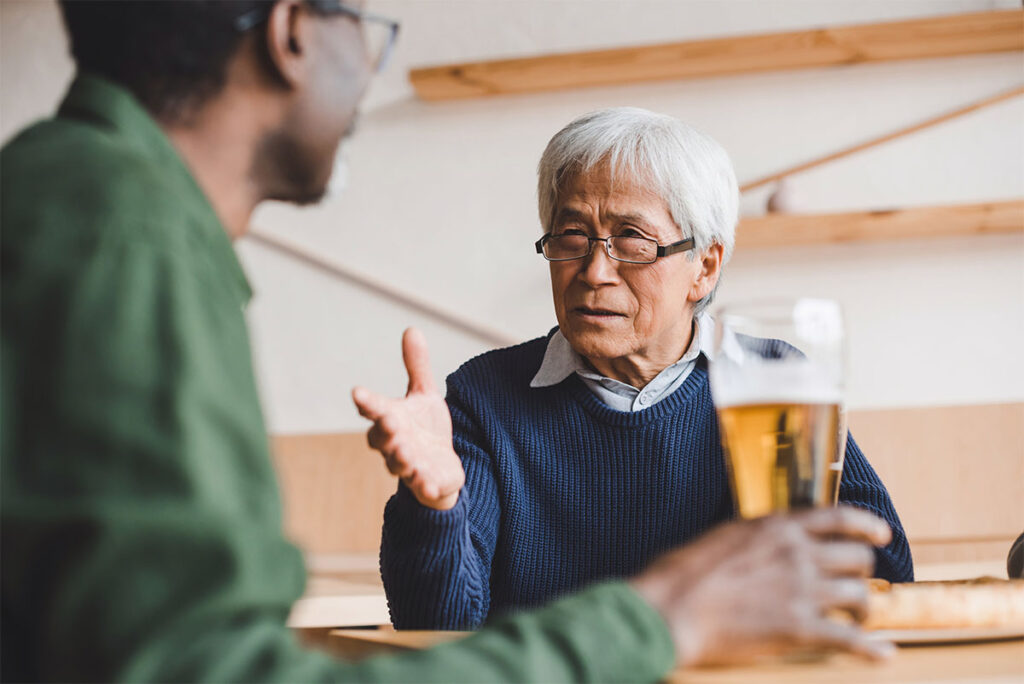
Share your experiences and insights with your trip sitter or someone you trust
Sharing your experiences and insights with your trip sitter or someone you trust is an essential aspect of the integration process following a psychedelic experience. Communicating openly about your trip can provide emotional support, enhance your understanding, and facilitate personal growth.
Emotional processing: Discussing your emotions and thoughts with someone you trust can help you process and make sense of your experience. It can also provide a safe space to explore any challenging or confusing aspects of your trip, promoting emotional healing.
Enhanced understanding: Sharing your insights with another person can offer alternative perspectives and help you gain a more comprehensive understanding of your experience. Your trip sitter or a trusted individual can offer feedback, reflections, and guidance based on their own knowledge and experiences.
Strengthening connections: Open communication with your trip sitter or a trusted individual can strengthen your relationship and foster a sense of connection. This can be particularly valuable as you navigate the integration process, providing emotional support and encouragement.
Ongoing support: Your trip sitter or a trusted person can offer ongoing support and guidance as you work to integrate the insights from your psychedelic experience into your daily life. They can help you maintain motivation, provide accountability, and assist in identifying potential obstacles or challenges.
Seek their perspective and input to help with integration
Seeking the perspective and input of others, particularly those with experience in psychedelics or mental health professionals, can greatly assist with the integration process following a psychedelic trip. Their insights can help you better understand your experience, provide emotional support, and guide you towards personal growth.
Expanding understanding: Others can offer alternative interpretations of your experience or provide a different perspective, allowing you to gain a more comprehensive understanding of the emotions and thoughts encountered during your trip.
Emotional support: Sharing your experience with someone who is empathetic and understanding can help you feel supported and less isolated during the integration process. They can provide reassurance, validate your emotions, and offer guidance for managing any challenging aspects of your trip.
Practical strategies: Experienced individuals or mental health professionals can provide practical strategies and techniques for applying the insights gained from your trip to your daily life. They can suggest mindfulness practices, self-care routines, or therapeutic interventions that can help you integrate your experience and facilitate personal growth.
Accountability and motivation: Discussing your experience and the insights gained with others can create a sense of accountability and motivation to make meaningful changes in your life. Their input can help you set realistic goals, track your progress, and maintain motivation for self-improvement.
Engage in open and honest conversations about the emotions and thoughts you encountered during your trip
Engaging in open and honest conversations about the emotions and thoughts encountered during a psychedelic experience can play a vital role in processing and integrating the insights gained from your trip. Sharing your emotions and thoughts with a trusted friend, therapist, or support group can provide valuable perspectives and help you better understand the significance of your experience.
Emotional expression: Verbalizing your emotions and thoughts can be cathartic and help you work through any challenging or confusing aspects of your trip. Sharing your experience can provide a sense of relief and aid in emotional healing.
Perspective and validation: Discussing your experience with others, especially those who have undergone similar experiences, can provide alternative perspectives and validate your emotions and thoughts. This can help you better understand the significance of your trip and facilitate personal growth.
Building support networks: Open and honest conversations can foster a sense of connection and build a support network of like-minded individuals. This can be particularly helpful for individuals who may not have access to a supportive community in their immediate environment.
Guidance and advice: Conversing with experienced individuals or mental health professionals can offer guidance on how to integrate your experience into your daily life, manage challenging emotions, and utilize the insights gained from your trip for personal growth and self-improvement.
Practice self-care
Practicing self-care after a psychedelic experience is essential for emotional healing, integration, and promoting overall well-being during the post-trip phase.
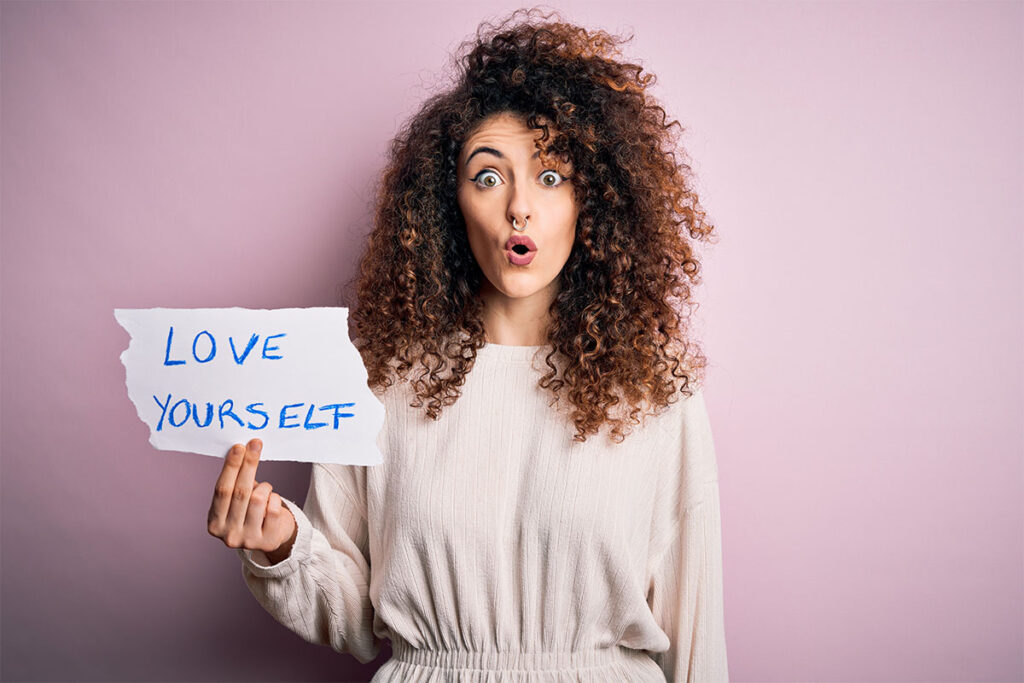
Rest and recover after your trip, giving your body and mind time to recalibrate
Rest and recovery are essential components of integrating and processing a psychedelic experience. A mushroom trip can be both physically and mentally exhausting, with lasting effects on your cognition, emotions, and perceptions. Therefore, it’s crucial to give your body and mind the time and space needed to recalibrate after your trip.
Sleep: Adequate sleep is vital for cognitive function, memory consolidation, and emotional regulation. After a psychedelic experience, ensuring you get sufficient rest will allow your brain to process the insights and emotions from your trip, which can contribute to a more profound understanding and integration of the experience.
Relaxation: Engaging in relaxation techniques such as deep breathing exercises, progressive muscle relaxation, or meditation can help reduce stress and anxiety that may arise from the intense emotions and revelations experienced during your trip. These practices can also promote mental clarity and overall well-being.
Emotional processing: It’s essential to give yourself the time and space to process the emotional aspects of your experience. Engaging in activities that promote emotional expression and reflection, such as journaling or talking with a trusted friend or therapist, can help you work through any challenging emotions and gain a deeper understanding of your trip.
Self-compassion: Be patient and gentle with yourself during the recovery process. Recognize that integrating a psychedelic experience can take time, and it’s essential to provide yourself with the care and support needed during this period.
Maintain a healthy diet, stay hydrated, and engage in light exercise to support your well-being
Maintaining a healthy diet, staying hydrated, and engaging in light exercise after a psychedelic experience can be crucial in supporting your overall well-being and facilitating the integration of insights gained during your trip. These practices can help you feel more grounded, energized, and focused on your personal growth journey.
Healthy diet: Consuming a balanced, nutrient-rich diet is essential for maintaining physical and mental health. Nourishing your body with whole foods, such as fruits, vegetables, lean proteins, and whole grains, can provide the necessary nutrients to support cognitive function, mood regulation, and overall well-being. Eating well can also aid in the recovery process after a psychedelic experience, ensuring your body has the energy and resources needed to process and integrate the insights gained.
Stay hydrated: Proper hydration is vital for maintaining optimal bodily functions and promoting mental clarity. Drinking sufficient water can help alleviate any residual physical discomfort or fatigue after your trip, allowing you to focus on processing and understanding your experience.
Light exercise: Engaging in light exercise, such as walking, yoga, or stretching, can help release endorphins, reduce stress, and increase energy levels. Physical activity can also serve as a form of meditation, allowing you to further explore and process the emotions and insights from your trip in a healthy, embodied way.
Continue practicing mindfulness and meditation to further explore the insights and emotions from your trip
Continuing to practice mindfulness and meditation following a psychedelic experience can play a vital role in further exploring the insights and emotions that emerged during your trip. These practices can help you maintain a deeper connection to your inner self and support the integration of your realizations into your daily life.
Mindfulness involves being present and fully engaged in the current moment without judgment, allowing you to cultivate a greater awareness of your thoughts, feelings, and bodily sensations. This heightened awareness can help you revisit and process the insights and emotions from your trip in a more grounded and focused way.
Meditation, a specific practice that often incorporates mindfulness, provides a dedicated space for introspection and self-exploration. By setting aside regular time for meditation, you can create an environment conducive to processing the insights from your psychedelic experience. This ongoing practice can also contribute to personal growth, stress reduction, and increased emotional resilience.
Various forms of meditation, such as guided imagery, loving-kindness, or body scan techniques, can be utilized to address specific aspects of your psychedelic experience. Experimenting with different meditation styles can help you identify which practices resonate most with you and support your journey of self-discovery.
Apply insights to daily life
After a psychedelic experience, it’s crucial to apply the insights gained to your daily life. This can foster personal growth and create lasting, positive change.

Identify any lessons, realizations, or changes in perspective that emerged during your trip
Identifying the lessons, realizations, or changes in perspective that emerged during your psychedelic trip is an essential step in making the most of your experience and fostering personal growth. By reflecting on these insights, you can gain a deeper understanding of yourself, your relationships, and the world around you, ultimately leading to lasting, positive change.
To effectively identify and process these insights, consider the following approaches:
Journaling: Writing about your experience can help you to organize your thoughts and explore the significance of any insights, realizations, or shifts in perspective. This process can be therapeutic and help you uncover deeper layers of understanding.
Meditation: Engaging in quiet reflection or meditation can facilitate the integration of your experience and help you more fully absorb and appreciate the lessons learned. By creating a space for introspection, you can process your trip’s emotional and cognitive aspects more effectively.
Dialogue: Discussing your experience with a trusted friend, trip sitter, or therapist can provide valuable insights and alternative perspectives. They can offer support, guidance, and help you to better understand and contextualize your realizations.
Artistic expression: Using creative outlets such as painting, drawing, or writing poetry can help you to communicate and explore the emotions and insights that emerged during your trip.
Consider ways to integrate these insights into your daily life, such as adopting new habits, setting goals, or shifting your mindset
Integrating the insights gained from a psychedelic experience into your daily life can be a powerful way to foster personal growth and create lasting, positive change. By adopting new habits, setting goals, and shifting your mindset, you can more effectively apply the lessons learned during your trip to various aspects of your life.
Adopting new habits: One way to integrate insights from your experience is to incorporate new, healthy habits into your routine. For example, if you gained a deeper appreciation for nature during your trip, you might consider spending more time outdoors or engaging in environmentally conscious practices. Similarly, if your experience highlighted the importance of mindfulness, you could explore practices like meditation or yoga.
Setting goals: Establishing clear, attainable goals can help you channel the insights gained during your trip into actionable steps for personal growth. These goals might involve improving relationships, focusing on self-care, or pursuing personal passions. Break down larger objectives into smaller, achievable milestones, and track your progress over time.
Shifting your mindset: Psychedelic experiences can often lead to shifts in perspective, prompting a reevaluation of your beliefs, values, or priorities. Embrace these changes by actively working to maintain and nurture your new mindset. This might involve engaging in self-reflection, journaling, or seeking support from friends or therapists to help you process and incorporate these new perspectives into your daily life.
Be patient and compassionate with yourself as you work to make meaningful changes
Being patient and compassionate with yourself as you work to make meaningful changes is an essential aspect of personal growth and self-discovery, especially following a psychedelic experience. Psychedelic mushrooms can provide profound insights and catalyze shifts in perspective, but translating these insights into lasting change can be a challenging and gradual process.
It’s important to recognize that change takes time and that personal growth is an ongoing journey, not a destination. You may experience setbacks or obstacles along the way, but these challenges are a natural part of the process. By cultivating self-compassion and patience, you can more effectively navigate these difficulties and maintain motivation for continued growth.
One way to practice self-compassion is to treat yourself as you would treat a close friend who is going through a similar experience. Offer yourself kindness, understanding, and encouragement, rather than harsh judgment or criticism. Acknowledge that it’s okay to feel vulnerable or uncertain and that these feelings are a normal part of the human experience.
Another approach is to establish realistic expectations and goals for your personal growth, recognizing that meaningful change often occurs incrementally. Break down larger objectives into smaller, achievable steps, and celebrate your progress along the way.
In conclusion, successful integration of a psychedelic experience is essential for personal growth and well-being. By reflecting on your journey, discussing your insights, practicing self-care, and applying what you’ve learned to your daily life, you can transform your experience into lasting, positive change and self-improvement.
Read the next instalment in the Safer Tripping Guide series, Part 5: Harm Reduction and Safety Precautions.
Part 1: Preparation, Part 2: Dosage & Consumption, Part 3: Navigating the Trip, and Part 4: Integration are also available.

